The number of ecommerce tools is mind-boggling. From shopping cart software to marketing automation tools, setting up your online store can be confusing.
With over two decades of experience in internet marketing and ecommerce, we understand that not all tools are a perfect fit for every business. Our team and dedicated users have spent countless hours exploring and testing various ecommerce software to provide you with the most reliable and insightful reviews.
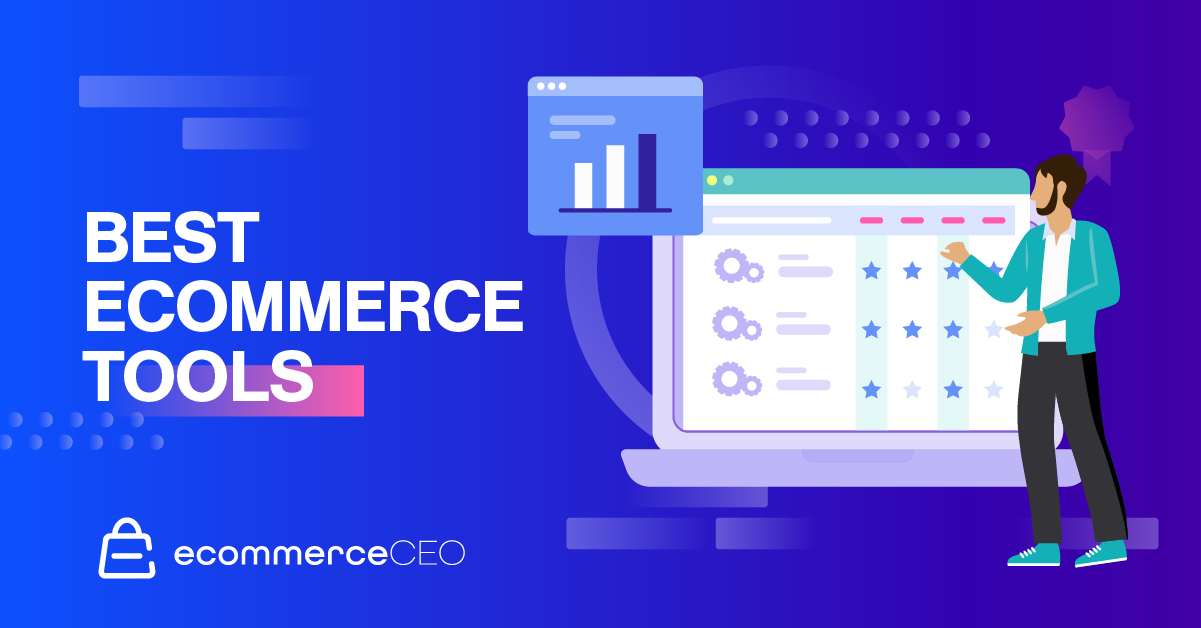
Understanding which tools offer time-saving benefits and which are simply time-wasting can be challenging for beginners. That’s why it’s essential to remember the various categories of ecommerce apps and development tools.
- Website Tools: These tools help in the stocking, presenting, and selling your products. They provide essential UI/UX design features, SCCs, and plug-ins.
- Product Research and Marketing Tools: These tools aid in product selection, consumers behavior analysis, demand forecasting, and strategizing effective advertising campaigns.
- Business Management Tools: These tools present solutions for managing business processes such as accounting, human resources, inventory, and customer relationships.
- Shipping and Logistics: These tools streamline your shipping processes, improve order fulfillment rates, and help easily manage complex supply chains.
- Finance & Payment Solutions: These tools handle transactions, automate invoicing, and ensure secure and convenient payment methods for customers.
- Product Sourcing: These aid in discovering and procuring high-quality products from reliable suppliers or enable print-on-demand services.
- Analytics & Optimization Tools: These tools grant actionable insights using data, enabling continuous improvement of your eCommerce strategy, traffic, and conversion rates.
- Customer Service: These tools facilitate excellent customer support services, swiftly resolving inquiries and improving overall customer experience.
To be successful, be aware of the entire technology stack you’ll need to start and grow your ecommerce business.
Website Tools
When venturing into eCommerce, picking the right tools to build and host your website is a crucial first step. Deciding on the ideal fit involves considering various aspects such as user-friendliness, versatility, and cost.
To guide you in making an informed decision, we’ve compiled detailed insights on ecommerce website design and a comprehensive evaluation of different ecommerce platforms. We’re confident these resources will assist you in identifying suitable website builders to get your online store up and running.
Shopify

Shopify shines over its counterparts regarding ease and inclusivity in the ecommerce space. It offers an accessible platform enriched with attractive features, catering to newbies and seasoned online retailers. Finding it hard to handle customization? Fret not. Many companies, such as Hey Carson, specialize in fine-tuning every facet of your Shopify experience down to the checkout process. You’re never alone in your journey to establish a successful ecommerce platform.
BigCommerce

BigCommerce truly shines as an enterprise ecommerce platform, largely due to its robust SEO capabilities. This platform aids businesses in capturing organic traffic, a key factor in scaling and succeeding in the highly competitive digital market. When weighed against other platforms like Shopify, BigCommerce holds its own.
Nexcess
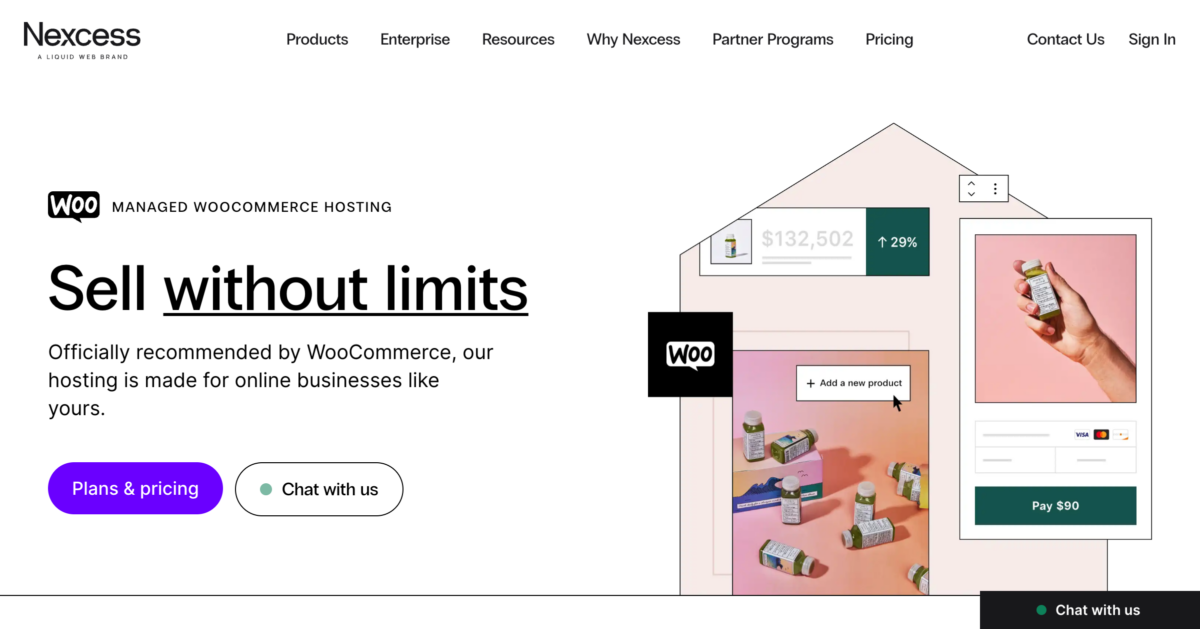
Revolutionizing your online store’s potential, Nexcess WooCommerce hosting offers a robust platform for your ecommerce endeavors. Renowned for its blazing-fast speed and ironclad security, Nexcess provides the perfect foundation to scale your WooCommerce store. Factor in 24/7 expert-level support and auto-scaling functionality, and you’ve got a tool purpose-built for serious ecommerce players. Try it and let Nexcess redefine your understanding of advanced hosting solutions.
Wix

When your budget is strapped, Wix is a strong option. A truly exceptional ecommerce website builder, it competes with WooCommerce and Shopify in the number of features offered. For ease of use, it’s as good as you can hope for from a free ecommerce platform, although if your store grows quickly, however, it can be a little tough to scale.
Sellfy
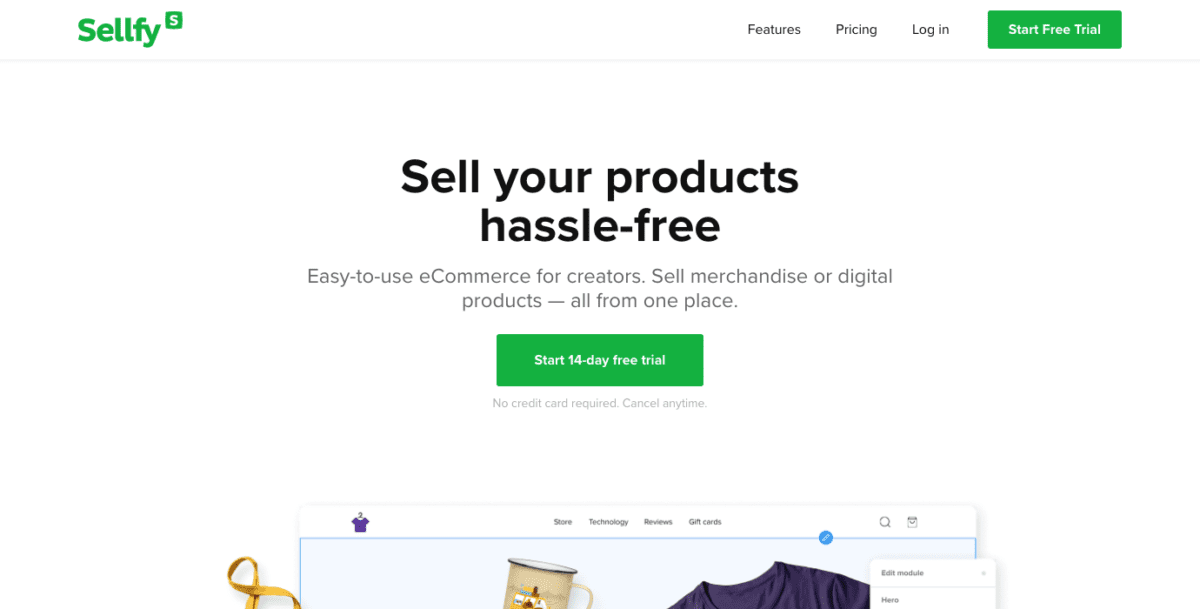
If you want to integrate print-on-demand capabilities with your ecommerce store, Sellfy does just that and aligns perfectly with your needs. What makes it remarkable is its focus on print on demand. A seamless blend of a website builder with extensive customization options, Sellfy helps you shine in the market with your unique products, minimizing inventory headaches.
Ecommerce Marketing Tools
As an entrepreneur, it’s crucial to understand the importance of in-depth product research and smart marketing. Figuring out what to sell online can distinguish between driving sales or falling flat. Leveraging robust ecommerce tools to explore market trends and customer preferences will give you that much-needed edge.
Alongside this, consider implementing Amazon keyword research tools. These can boost your visibility in search results, driving organic traffic to your product pages and improving your overall conversion rates. The right combination of these strategies can significantly elevate your ecommerce success.
Helium 10
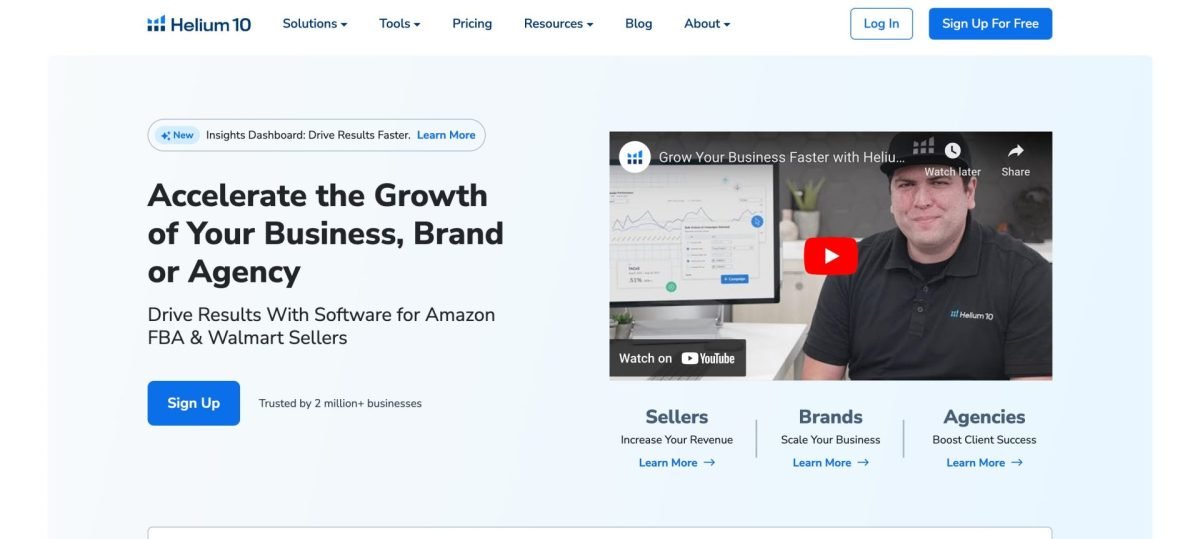
Engaging in ecommerce can be daunting, given the myriad aspects you must consider. That’s where tools like Helium 10 come in. It is an all-in-one solution that handles product research, keyword discovery, listing optimization, and much more. Perfect for novice and expert Amazon sellers, Helium 10 is your right-hand ally when it comes to navigating the challenging waters of ecommerce. Keen on becoming a successful Amazon seller? Equip yourself with Helium 10.
Jungle Scout
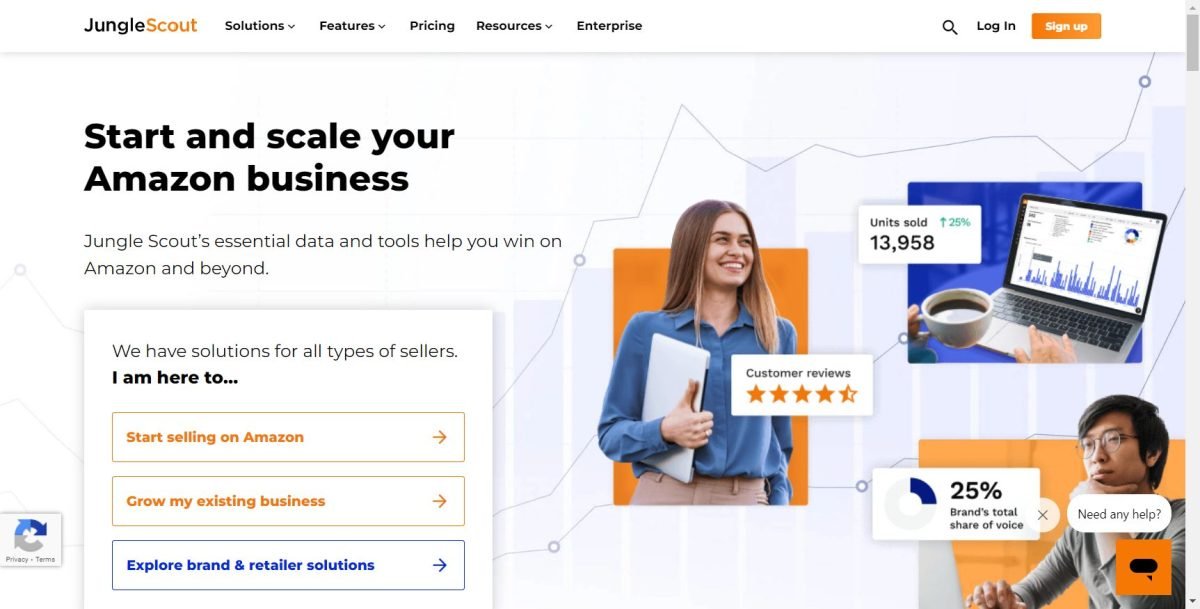
Let’s talk about Jungle Scout. This robust tool is crucial for entrepreneurs who want to thrive in ecommerce. Equipped with powerful features like product discovery, keyword research, and sales analytics, it aids in simplifying your Amazon product research. Deciding between Jungle Scout and another popular ecommerce tool? A useful comparison of Jungle Scout and Helium 10 can be found here, exploring each tool’s functionalities to help ensure you make an informed decision.
Omnisend

Looking to innovate your email marketing tools for your campaign? Meet Omnisend—a tool designed specifically for ecommerce. This platform streamlines your marketing efforts across multiple channels, including email campaigns, SMS marketing, push notifications, and Facebook and Google ads, allowing you to reach your customers where they’re most active.
Improve your customer journey with features like customer segmentation and personalization. Omnisend’s extensive templates and designs save time and facilitate quickly building engaging content. Best of all, you can track your success with customer interaction data and insights. Embrace the power of omnichannel marketing with Omnisend.
Bulk.ly
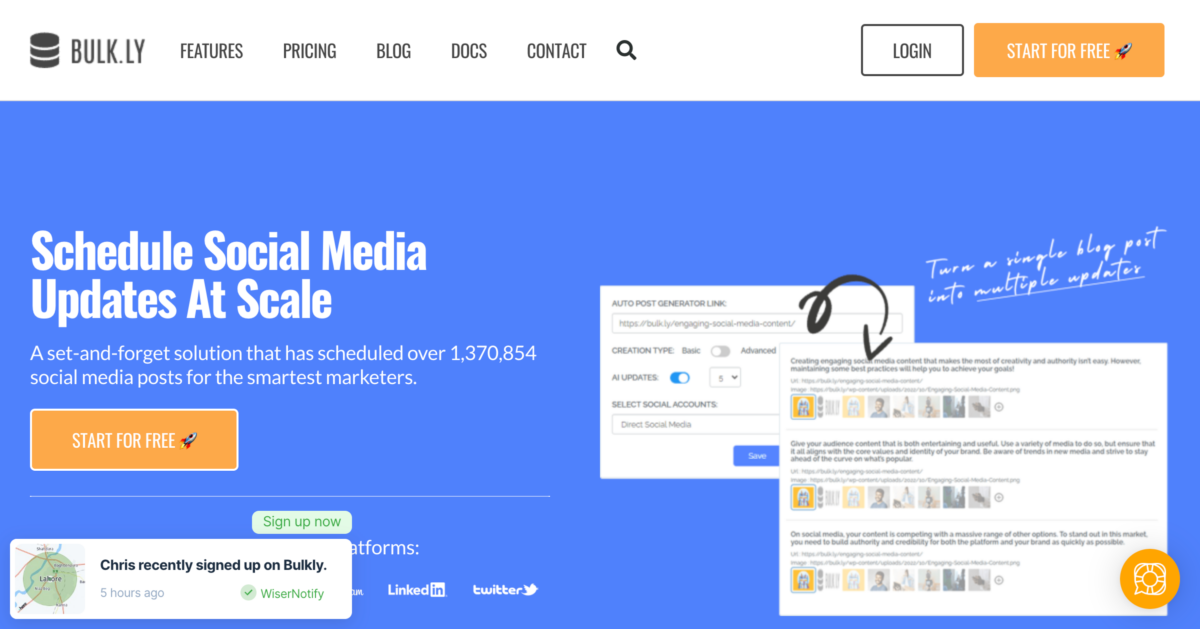
Have you ever wished for a more streamlined process for promoting your content on social media? Let Bulk.ly lend a hand. Although not a virtual assistant, this invaluable tool takes on the tedious task of scheduling and posting your carefully crafted social media messages. Ideal for ecommerce businesses, Bulk.ly enhances brand visibility and engagement, making social media management more manageable. Remember, you’re still in the driver’s seat when it comes to content creation, but now you don’t have to worry about when and where to post it.
SocialBee
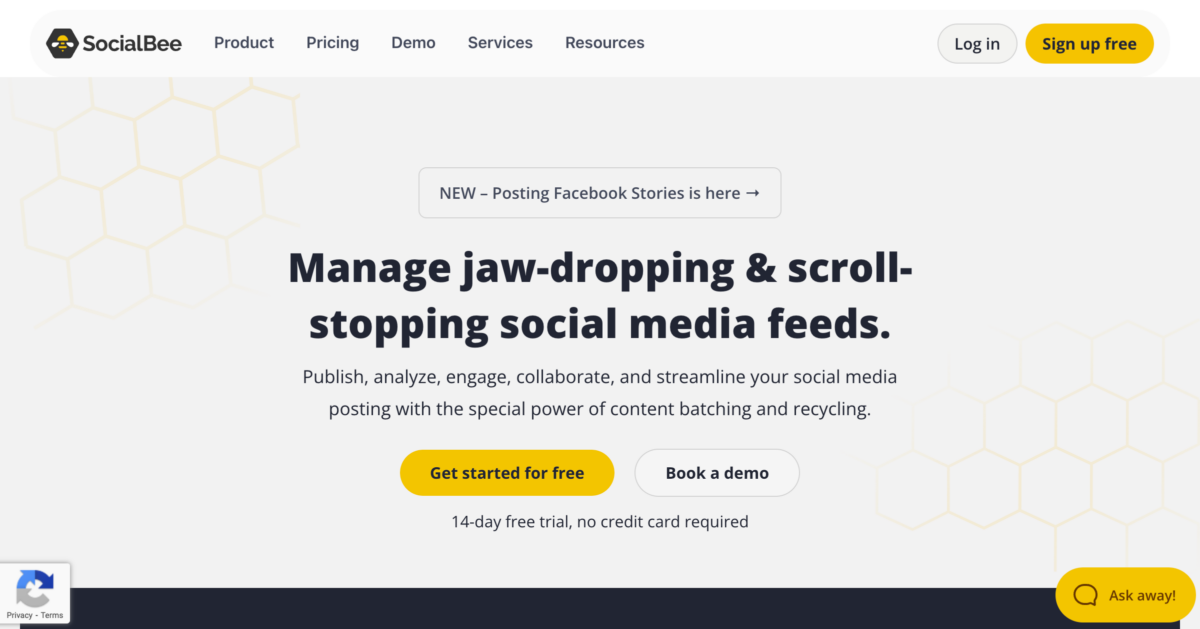
After trying a variety of social media management platforms, we finally settled on SocialBee, and we couldn’t be more satisfied. This platform provides something unique in the world of ecommerce tools: a concierge service. Unlike many other social media management tools, it doesn’t stop at simply providing the tools for managing your social media. With its concierge service, SocialBee takes the reins, fully managing your social media posting and engagement. This results in an unmatched level of convenience, allowing you to focus on other aspects of your business.
Antavo
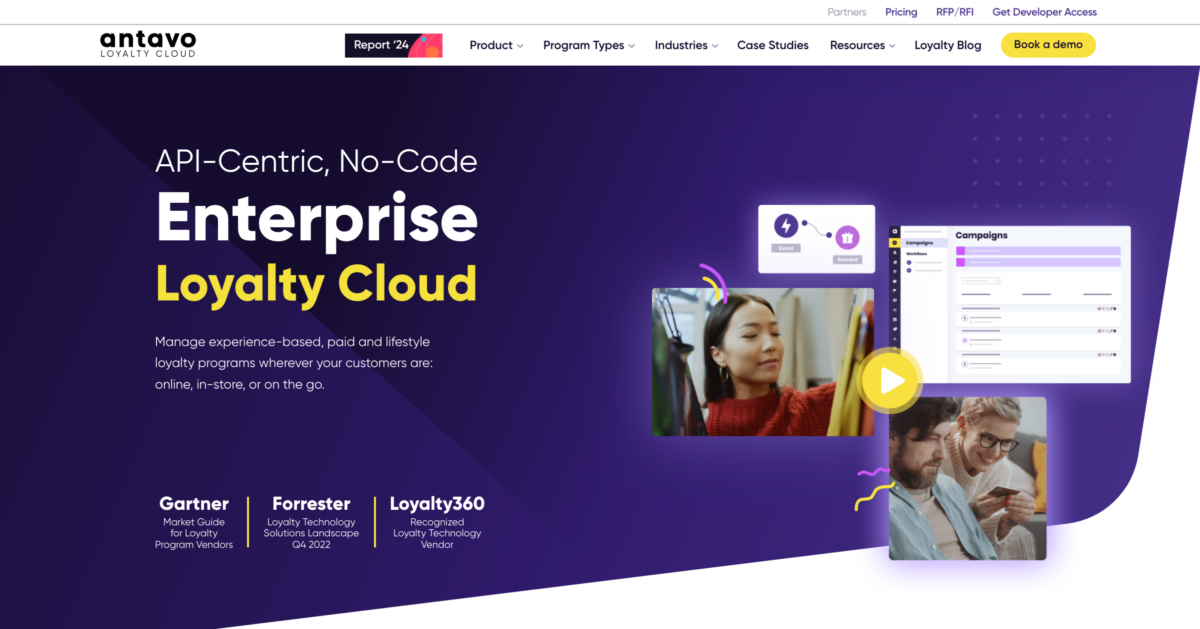
Looking to personalize your customer loyalty programs? Antavo is your go-to ecommerce tool. It offers a points-based loyalty program beyond simply providing rewards for purchases. For instance, you can reward customers for various online behaviors, including sharing your products on social media. This tool fosters brand loyalty and increases repurchases, thus increasing your overall sales and profits. It also comes integrated with favorite ecommerce platforms like Shopify and Magento.
Canva

Let’s dive into visual content creation with Canva, a crucial ecommerce tool to enhance any digital marketing strategy. Canva is designed to make graphic design easy for anyone – you don’t have to be an expert! It offers an intuitive interface with templates perfect for social media posts, ads, blog images, and more. The drag-and-drop feature and exclusive stock photos make your designs stand out. Don’t undervalue visuals; with Canva, create high-quality visual content that can allure, engage, and convert your target audience.
Reword

Are you on a mission to create potent content marketing? Look no further than the powers of Reword. This marketing platform helps forge an effervescent connection between your brand and potential customers, enabling you to create product descriptions that capture user intent and your brand’s distinctive spirit. Equipping your ecommerce approach with a tool like Reword can increase audience interaction, boost brand visibility, and drive your business toward unprecedented growth.
FindNiche
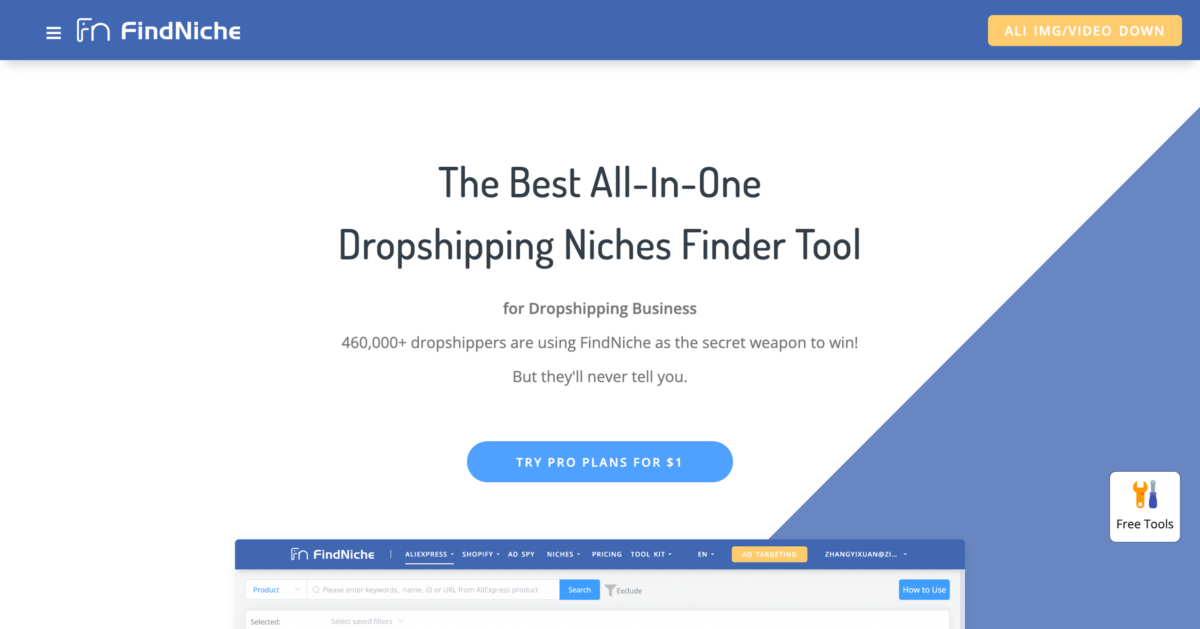
If you’re involved in the dropshipping arena, FindNiche might just be the tool you’ve longed for. It’s engineered to help you find top-performing products to dropship. It deciphers massive data from leading ecommerce platforms to bring you valuable information. From trending items to detailed analytics of successful stores, FindNiche helps you make informed decisions, setting your dropshipping venture on the right path toward prosperity.
Prisync
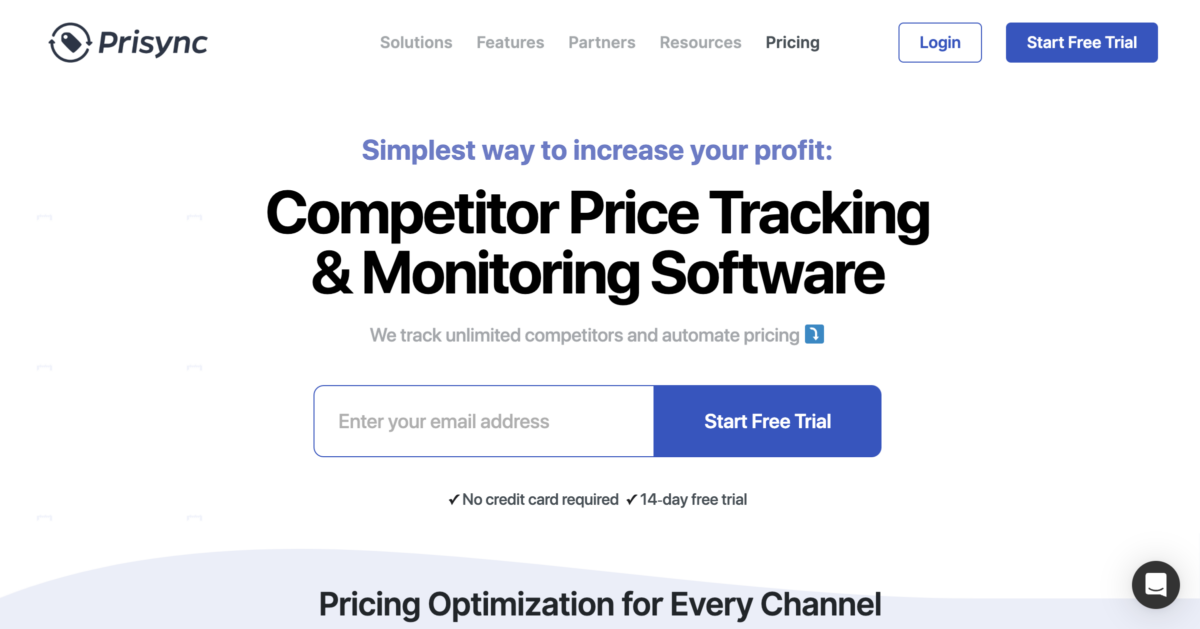
For ecommerce businesses, staying competitive is vital, and Prisync, a competitor price tracking and dynamic pricing software, serves this purpose brilliantly. It monitors competitor prices and stock availability, incorporates seamlessly with Amazon, and is customizable to your online store. Prisync’s analytics empower you to make data-oriented decisions, giving your business the competitive edge.
Business Management Tools
Running a successful ecommerce business involves more than just setting up a website and selling your products. For instance, getting your business up and running can be an uphill task if you don’t have the right know-how. Once you’re in operation, using proper accounting software becomes crucial in keeping your finances in check. Integrating this software with effective bookkeeping practices ensures your business stays profitable and grows sustainably.
StartGlobal
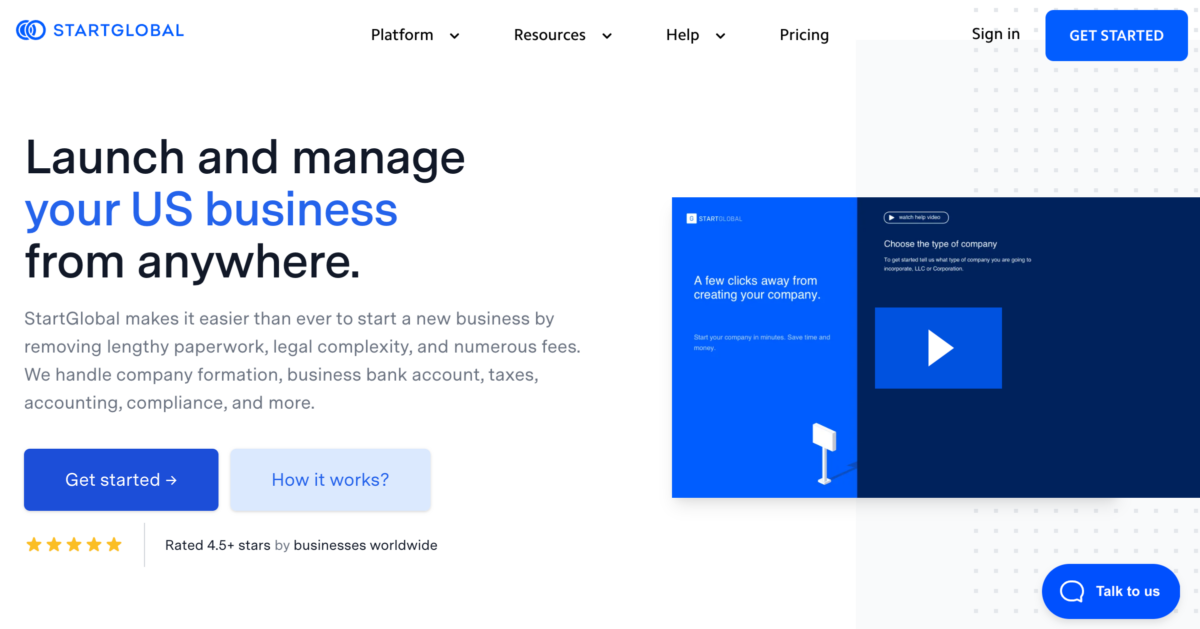
We highly recommend StartGlobal if you’re planning to set up your LLC. Countless ecommerce business owners trust this service for its ease and simplicity. Besides offering a straightforward solution to form your LLC, StartGlobal also delivers robust services in accounting and bookkeeping, ensuring your financial matters are in good hands. Remember, the right foundation sets the path for the success of your ecommerce business.
Striven
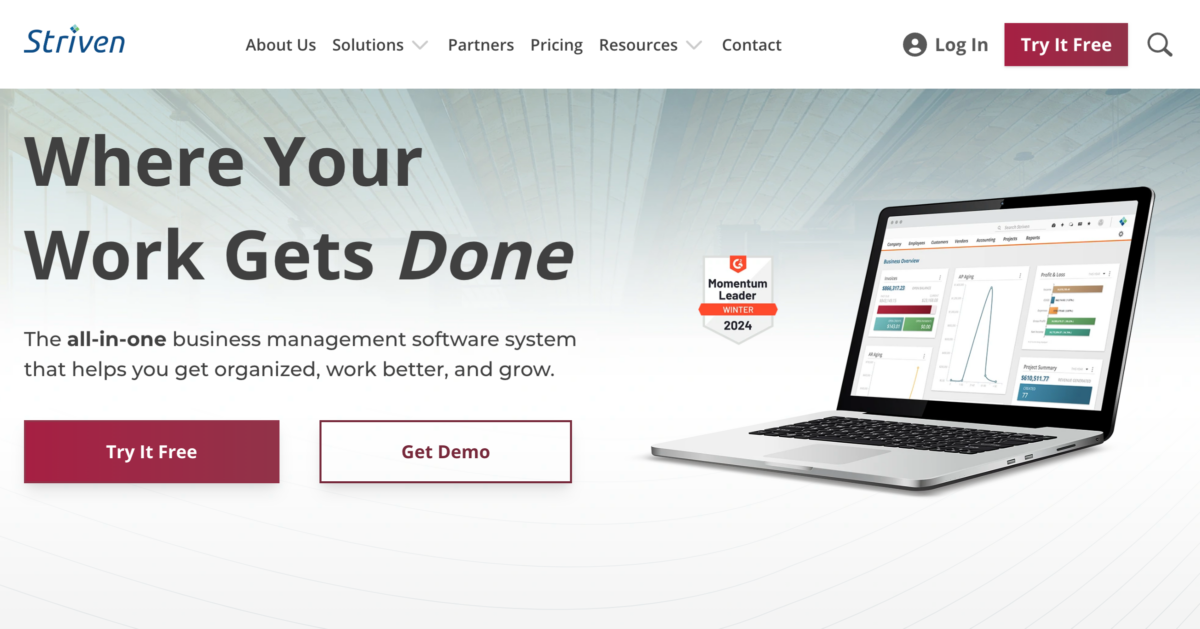
Striven provides a multitude of services aimed at facilitating business operations. It utilizes a comprehensive platform for managing retail and ecommerce processes, encompassing aspects from sales automation and inventory management to financials and customer relationship management. With Striven, your business can streamline various operations into a cohesive strategy, allowing you to prioritize growth and customer satisfaction. It certainly holds a substantial position in the panorama of ecommerce tools.
Freshbooks

For any ecommerce business, managing finances effectively is crucial. This is where FreshBooks steps in – an all-encompassing accounting software designed to keep your business’s financial health in check. Not only does this tool digitize crime-prone areas like invoicing and expense tracking, but it also makes them efficient and user-friendly. With features like time-tracking, project management, customizable business reports, and effortless payment processing, FreshBooks is a comprehensive financial suite that contributes positively to your ecommerce business’s bottom line.
Xero
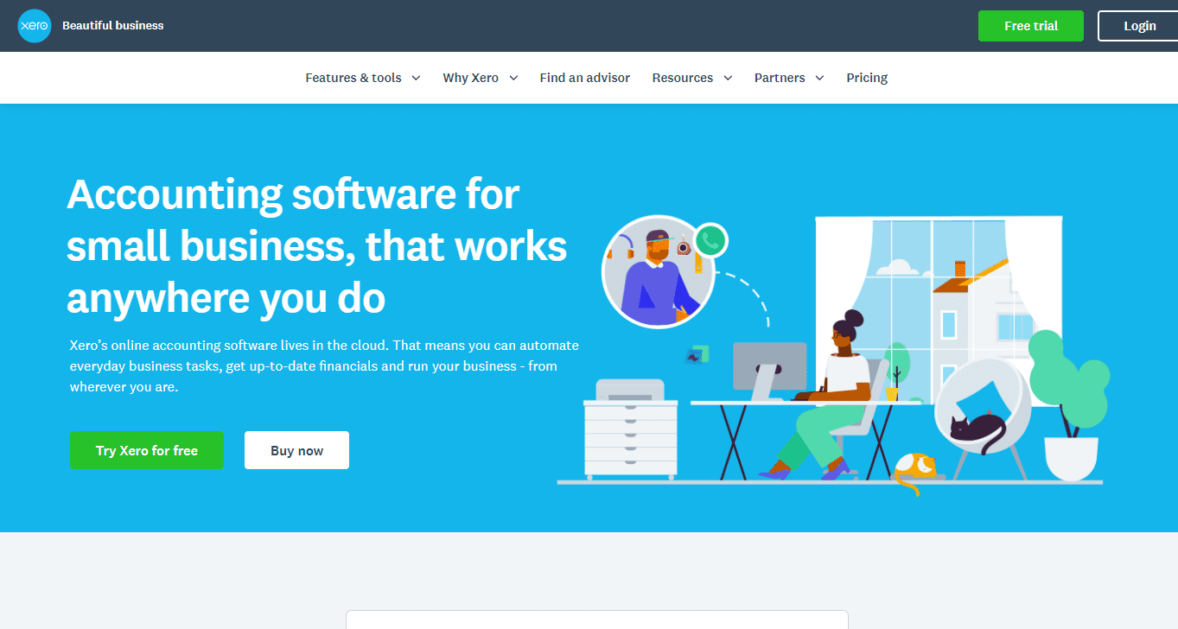
Xero, a leading accounting software solution, integrates smoothly with ecommerce platforms and payment gateways. Unlike other platforms, Xero offers user-friendly management of GST, invoices, and foreign currency accounts. Known for its reliability and security, it emerges as a top-choice for ecommerce business owners seeking simplified financial management, providing a much-needed alternative to platforms like QuickBooks.
Sage 50
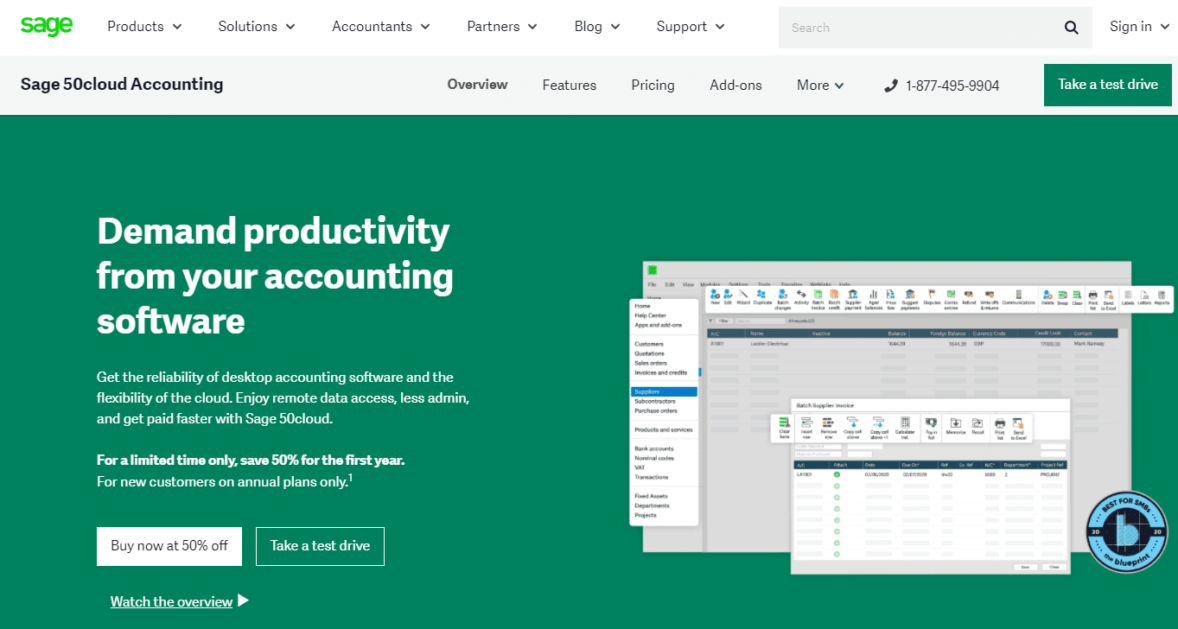
Welcome to the world of Sage 50, an all-in-one business accounting solution particularly suited to small businesses and solopreneurs. What if we told you that managing your invoices, cash flow, inventory, taxes, and more could be as simple as touching a button? That’s precisely what Sage 50 offers. With its cloud-based functionality, you can manage all your business finances from anywhere, anytime. It makes the daunting task of managing business numbers genuinely straightforward!
Zoho
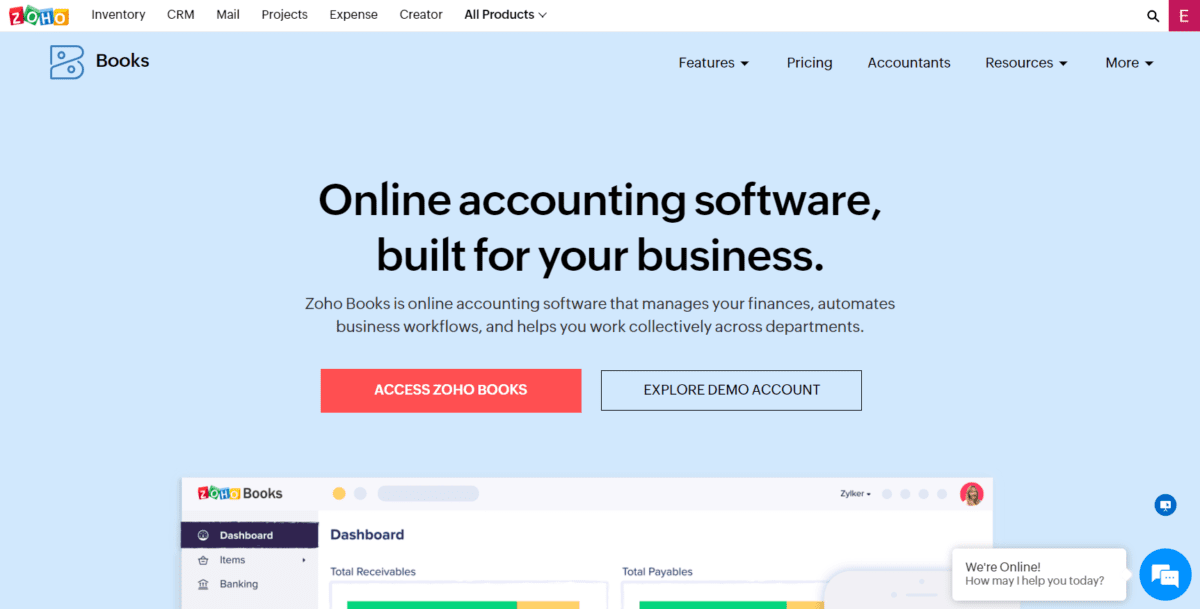
A one-stop solution for your ecommerce business, Zoho brings you many tools to elevate your operations. With Zoho Books, your accounting needs are taken care of, ensuring your financials remain in impeccable order. In addition, Zoho provides an inventory management system to keep track of stock levels and sales. Through Zoho CRM, customer relationships are easily maintained and strengthened. Interestingly, Zoho also features a user-friendly website builder, making it possible for entrepreneurs to create their very own ecommerce website without professional coding skills.
Teamwork

Dive into the realm of potent project management tools, and you’re bound to discover Teamwork. A tool we pride ourselves on utilizing, it offers an impressive array of features that streamline workflows, manage tasks efficiently, and improve communication among your people.
With facilities for task assignments, time tracking, and collaborative workspaces, Teamwork shines in enhancing operational efficiency. More than just task management, it flourishes in the realm of communication by providing a centralized location for messaging, file sharing, and more, making your people seamlessly connected. Try Teamwork to boost productivity and smooth out the workflows across your ecommerce undertakings.
Shipping & Logistics
As a small business, you may not require the complexity of third-party logistics (3PL) right away. You can get by with basic shipping software to fulfill your orders. However, understanding these essential workings becomes increasingly important as your sales volume increases.
Similarly, the use of fulfillment services, which manage the storage, packaging, and shipping of products, becomes more crucial as your load increases and becomes difficult to manage manually. Plus, if your inventory expands, you may find small business-friendly warehouse management software (WMS) incredibly beneficial. This can streamline your inventory tracking, order picking, and shipment tracking, leaving you more time to focus on growing your business.
ShipBob
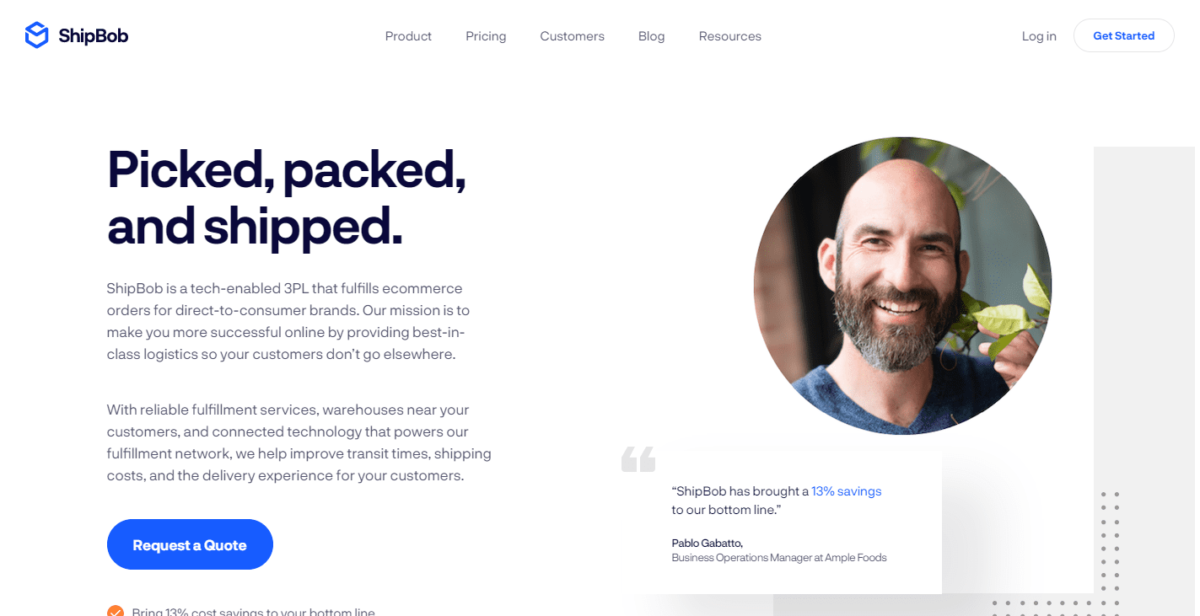
Shipping is crucial, and one tool that simplifies the process is ShipBob. It’s more than just a shipment company – as an end-to-end fulfillment partner, it handles storing, packing, and delivering your product to your customers. It reduces shipping costs and quickens the delivery time frame, which is a huge advantage in a world that values fast delivery. It also integrates seamlessly with leading ecommerce platforms for a smooth workflow, making it a must-have tool for online shops aiming to excel in customer satisfaction.
ShippingEasy
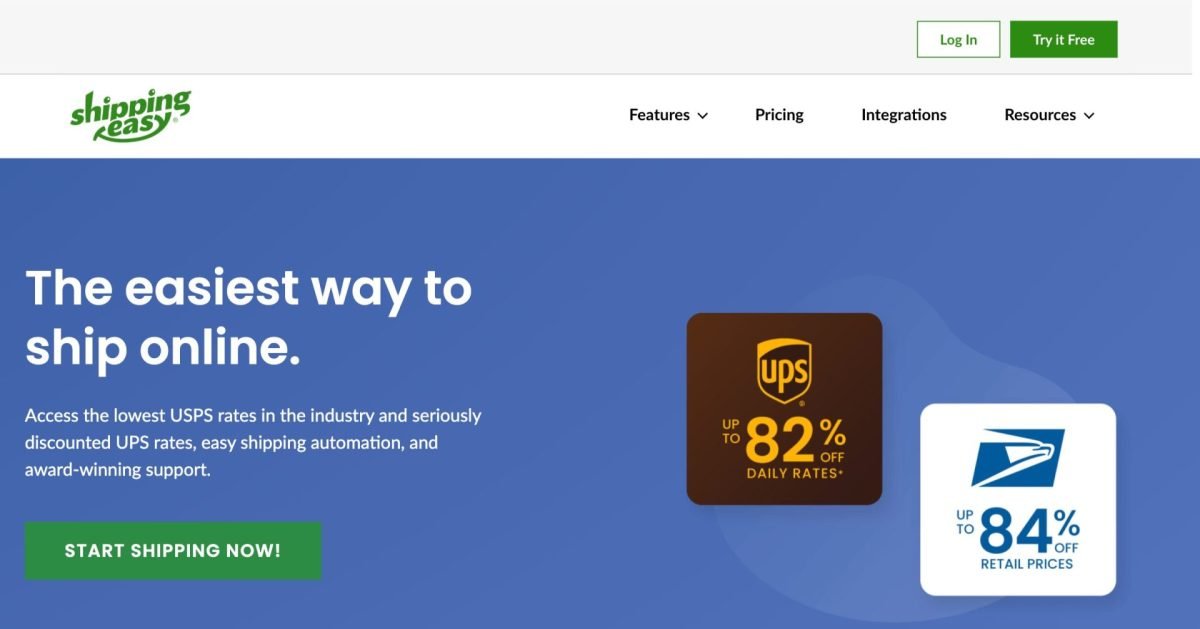
From negotiating the delivery logistics to sending out automated email updates, it’s abundantly clear why ShippingEasy has taken the industry by storm. Never has it been as effortless to map out intricate shipping operations, integrate mailing lists, and craft personalized client correspondences using ShippingEasy’s advanced email automation features. Backed by its comprehensive shipping software, you’re not just shipping packages but delivering a seamless customer experience that’ll keep them coming back.
Katana
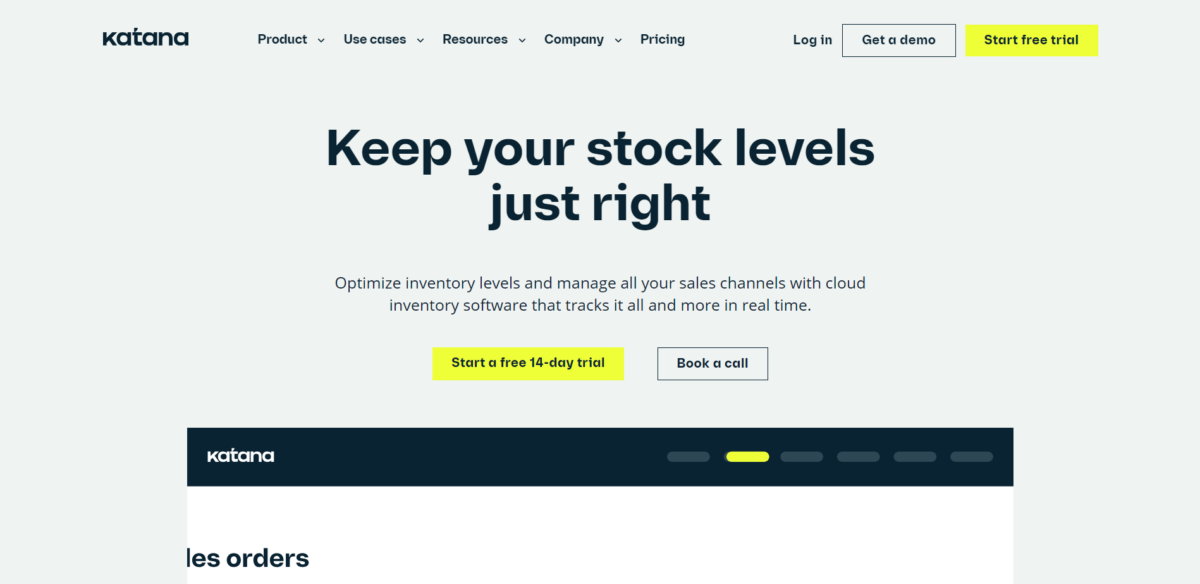
Imagine managing your entire inventory, production, and sales in one centralized dashboard. That’s what you’ll get with Katana. Built for small to medium-scale producers and merchants, Katana streamlines your business processes, creating an environment where everything works harmoniously. On Katana, you can streamline your inventory with real-time availability updates. The software also enables direct sales channel integrations with platforms like Shopify to create a real-time inventory and manufacturing management solution.
Easyship
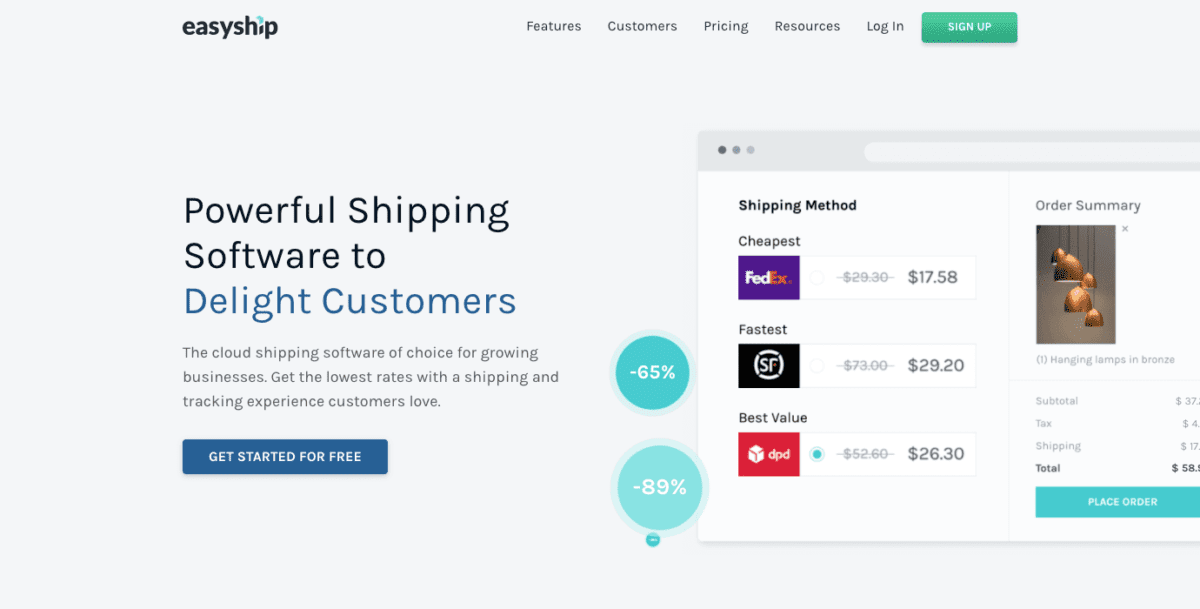
If you’re looking for a solution to simplify your ecommerce shipping, look no further than Easyship. This tool brings simplicity and efficiency to your business, automatically calculating the best shipping rates from over 250+ courier services. Plus, they offer shipping discounts that can significantly affect your overall costs. Moreover, it integrates seamlessly with major ecommerce platforms like Shopify and WooCommerce. With Easyship, handling cross-border shipping taxes, providing customers with tracking numbers, and managing returns becomes a breeze. It’s an all-in-one shipping tool designed to eliminate ecommerce logistics stress.
Shipstation
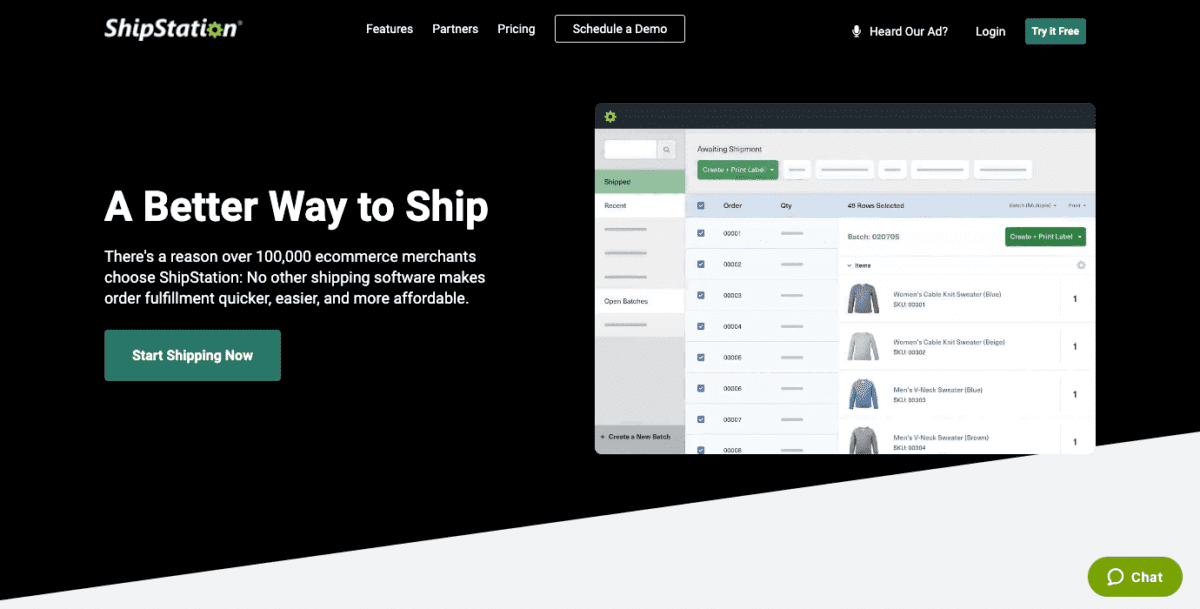
You’ve likely spotted Shipstation’s advertisements on television, promoting it as a practical solution for shipping and logistics. This ecommerce tool stands out with its powerful automation features that make shipping faster and more efficient. No matter the volume of product orders you need to fulfill, Shipstation is equipped to handle it while minimizing errors. It integrates smoothly with several online marketplaces, offering real-time tracking so you always know where your shipments are.
Finance & Payment Solutions
As you navigate the waters of ecommerce, adequate financing and robust payment solutions become critical for your business. It’s imperative to stay enlightened on credit card processors that streamline payments, cutting-edge funding opportunities for adequate financial support, and the importance of comprehensive business insurance to protect your venture. Choosing the right tools in these areas can fortify your business strategy, foster growth, and secure profits for your ecommerce endeavor.
Novo

If you’re seeking a robust business banking solution for your ecommerce venture, look no further than Novo. Novo, a digital banking platform for modern entrepreneurs, is committed to simplifying business banking. With intuitive money management features and seamless integrations with ecommerce sites, it fosters easier financial management. Backed by robust funding, Novo provides a tech-powered gateway to streamlined, hassle-free banking.
Square POS

Reliability and smooth transactions are key in ecommerce, where Square POS excels. This powerful tool offers you not just a secure platform for accepting payments, but also a suite to manage your inventory and sales reports. Whether you’re just starting out or already have an established online store, Square POS adapts to your needs, bringing ease of use to your operations. It’s no wonder it’s among the best regarding point-of-sale systems.
8fig

Driven by the future of finance, 8fig has emerged as an ecommerce tool for businesses and entrepreneurs seeking a seamless payment solution. This ground-breaking platform supports both online and physical stores, efficiently managing payments and card processing. It offers extreme convenience by integrating with your existing setup, allowing you to accept diverse payment methods from customers worldwide. With 8fig, you can enhance your business’s financial operations and focus on growth and profitability.
OFX

OFX brings to the table an effective financial solution for your ecommerce business. As an international money transfer service, it affords flexibility and convenience during transactions. Operating in 55 currencies across 197 countries, it offers competitive exchange rates and low fees. You’ll find its 24/7 customer service a boon, especially with overseas clients. With features to aid in risk management, it aids in sustainable business growth, reducing the stress of global transactions. Overall, OFX smoothes out the path to your ecommerce success.
Sourcing Products
Acquiring products at a competitive cost can be one of your toughest challenges in ecommerce, making sourcing a key business activity. But fret not! Crucial tools exist to make this simpler. Whether you’re keen on tapping into the realm of print-on-demand, dropshipping companies, or creating your unique line with notable private label manufacturers, we’ve got services and software recommendations to kickstart your business.
Printify
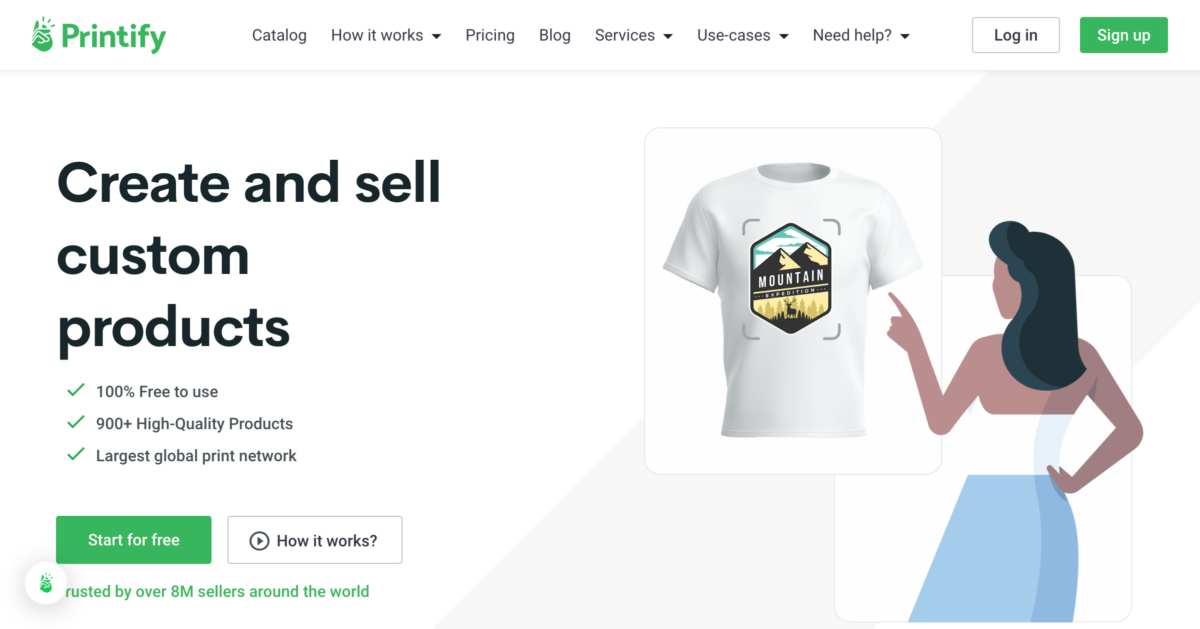
If you’re in the eommerce trade of selling custom products, Printify is your perfect ally. It’s a print-on-demand platform that simplifies creating and selling customized items. You design your products, and when a purchase is made, Printify manages production and shipping. It integrates with multiple print providers, reducing shipping times and boosting customer satisfaction. Plus, it seamlessly meshes with ecommerce platforms like Shopify and Etsy, making store management straightforward.
Inventory Source
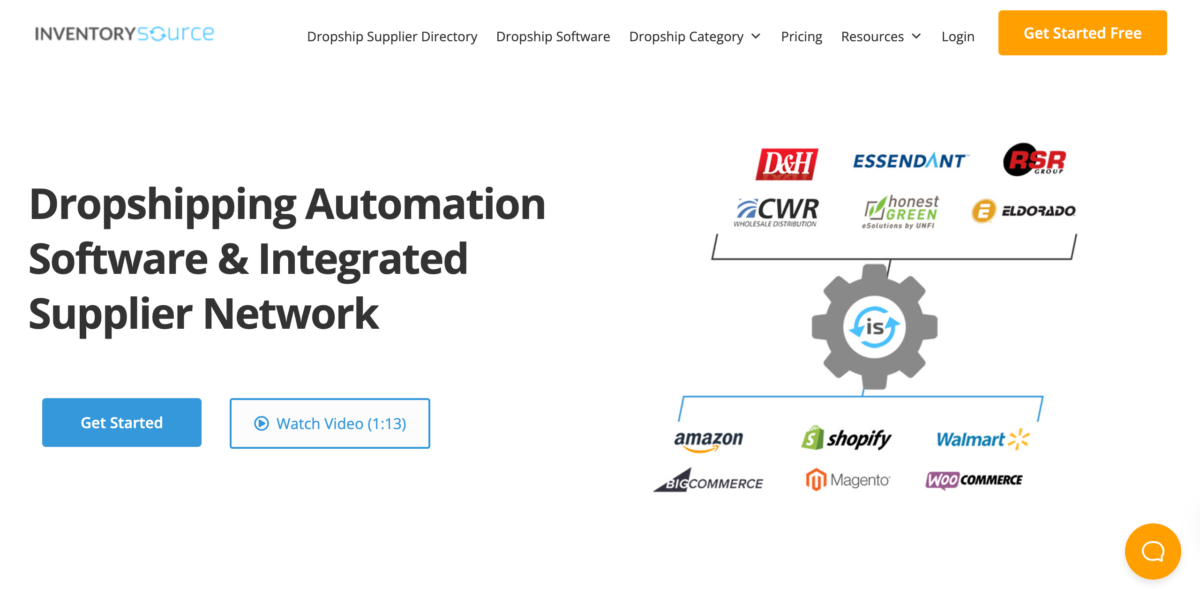
If you’ve struggled with inventory management, cast your worries aside with Inventory Source. This tool automates the process of syncing and updating your product data from your suppliers. Imagine freeing yourself from manually matching SKU numbers or figuring out shipping and handling rates. With Inventory Source, this becomes a thing of the past. Plus, you can automatically sync inventory to a host of ecommerce platforms. It’s the perfect tool for seamless, effortless inventory management.
SaleHoo
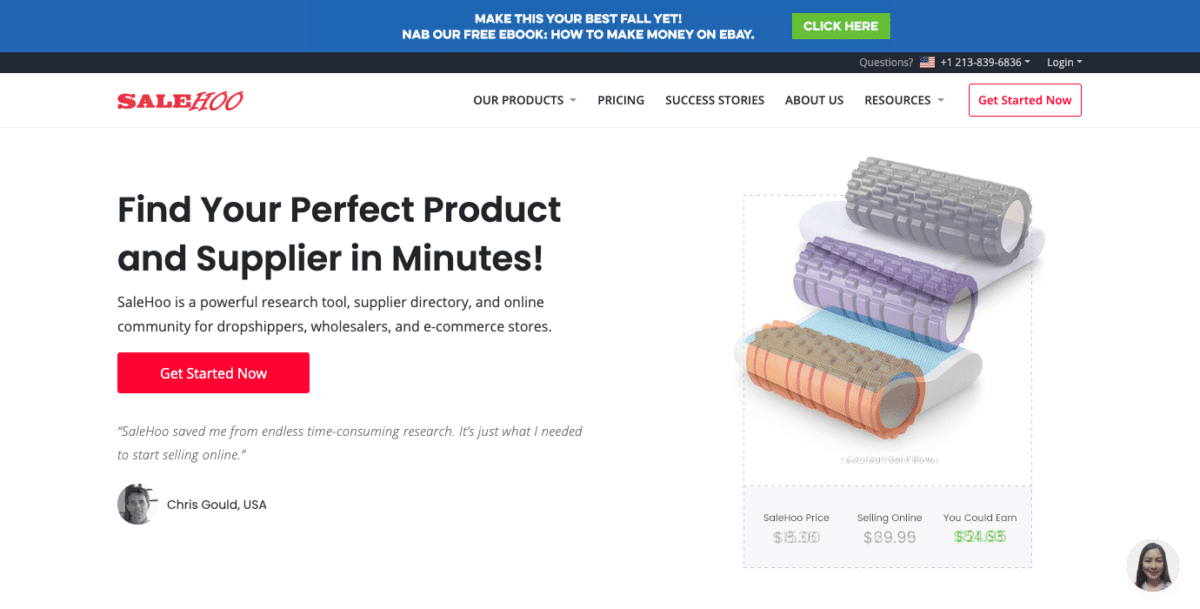
If you’re looking to step into the world of wholesale and dropshipping, SaleHoo should be on your radar. Known for its comprehensive directory of 1.6 million products from over 8,000 suppliers, it’s the key resource for finding reliable, low-cost suppliers. With SaleHoo, you can buy and sell goods and get market research labs, community forums, and e-commerce training materials. It’s the ultimate tool for savvy eeommerce entrepreneurs who want to avoid stock risks while maximizing potential profit.
Gelato

If you’re planning on selling custom products, Gelato fits the bill. This global print-on-demand network enables ecommerce businesses to sell personalized products with their own designs. With Gelato, you can tap into a network of over 100 print providers worldwide. Besides, you don’t need to worry about inventory or logistics because Gelato handles everything. This powerful tool provides storage and product shipping, allowing you to focus on other important aspects of your ecommerce business.
Analytics and Optimization
Understanding the dynamics of your online store is quintessential for business success. Not only does it gauge user experience, but it also gives a clear insight into customer behavior patterns. Whether it’s optimizing the loading speed, improving product search functions, or enhancing your site’s SEO, fine-tuning these details benefits your brand’s performance and can significantly boost conversions. Here are some of the best analytics tools for ecommerce.
Unbounce

Unbounce caters to ecommerce businesses by offering tailored solutions to boost online sales. This powerful tool allows you to design landing pages that entice conversions, A/B test different elements of your pages, and even provides pop-ups and sticky bars for strategic promotions. With Unbounce, you can turn more website visitors into buyers, thus improving your ecommerce performance and, ultimately, your bottom line.
Google Analytics

As a prominent tool, Google Analytics is hard to ignore in ecommerce. It’s like your map through the tumultuous terrain of digital marketing. However, the migration from Universal Analytics to GA4 hasn’t been a bed of roses. While improvements were expected, the experience has proven, for many users, more cumbersome instead. Remember the old wisdom, “If it ain’t broke, don’t fix it,” you might find it helpful to explore other alternatives. Check out this list of Google Analytics alternatives for a few great options.
VWO: Visual Website Optimizer

With VWO, you’re acquiring an ecommerce tool steeped in analytical prowess specifically designed to boost your site’s conversion rate. This creative platform enables you to deploy different versions of your web pages and to learn about their effectiveness in real time. VWO’s strength lies in its comprehensive output of results – it lucidly exhibits how your tests influence customer behavior and conversion rates. By effectively harnessing the results provided by VWO, you’ll be uniquely positioned to tailor your site’s user experience to your specific audience. This, in turn, will stimulate noticeable growth in your ecommerce venture.
User Testing
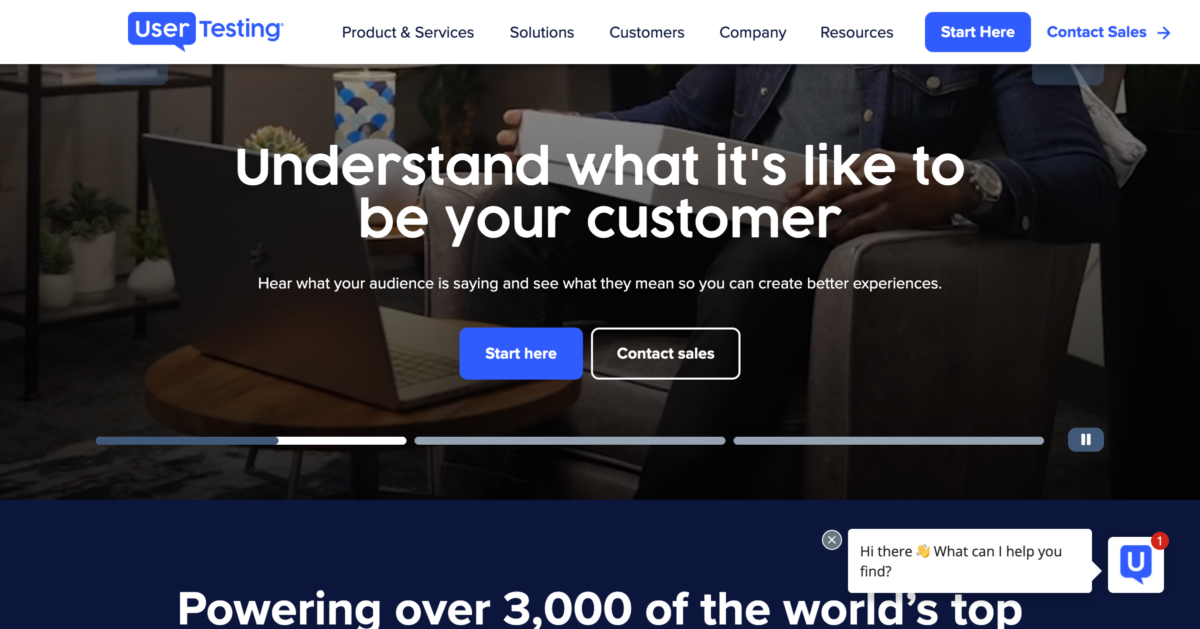
Dive into the user’s behavior with User Testing. This innovative ecommerce tool offers real-time insights from your audience, helping you comprehend their needs and preferences. It’s the need of the hour to create an unparalleled shopping experience, and what’s possibly better than understanding it directly from your customers? By putting your site in the hands of actual users, User Testing enables you to spot potential issues, understand points of friction, and then refine for optimum satisfaction.
Ahrefs

For over a decade, I’ve discovered the immense value of Ahrefs in bolstering my website’s growth. It’s an extraordinary tool for SEO analytics and examining your website’s backlinks. A vital point to remember is that, although it may not suit Amazon keyword research, it’s phenomenal for a comprehensive approach to keyword research in general. So, regarding backlink profiling, robust keyword research, and technical SEO, Ahrefs invariably provides top-notch results. Remember to leverage this tool in areas where it truly shines, to amplify your ecommerce success.
Customer Service
Remember that customer service is a cornerstone of any successful ecommerce business. Creating a strong customer service culture like industry titan Amazon can differentiate your brand in an increasingly competitive market. Amazon is famously obsessed with customer satisfaction, an attitude we should emulate. They focus on anticipating needs, not merely responding to them. Adopting customer service tools for such personalized and attentive service can greatly boost your customer loyalty and overall brand reputation. Ecommerce is not just about having great products but also about making customers feel valued.
Gorgias

Gorgias is a powerful tool that integrates all your customer support under one roof. It’s an all-in-one helpdesk specifically built for Ecommerce businesses. Wondering what makes it shine? Gorgias excels at integration – it merges all your different communication channels (emails, chat, social media messages) into a single platform. This integration allows you to keep track of customer inquiries, orders, and refunds without switching between numerous tabs. Moreover, it integrates seamlessly with Ecommerce platforms like Shopify, thus linking customer data.
Zoho Desk
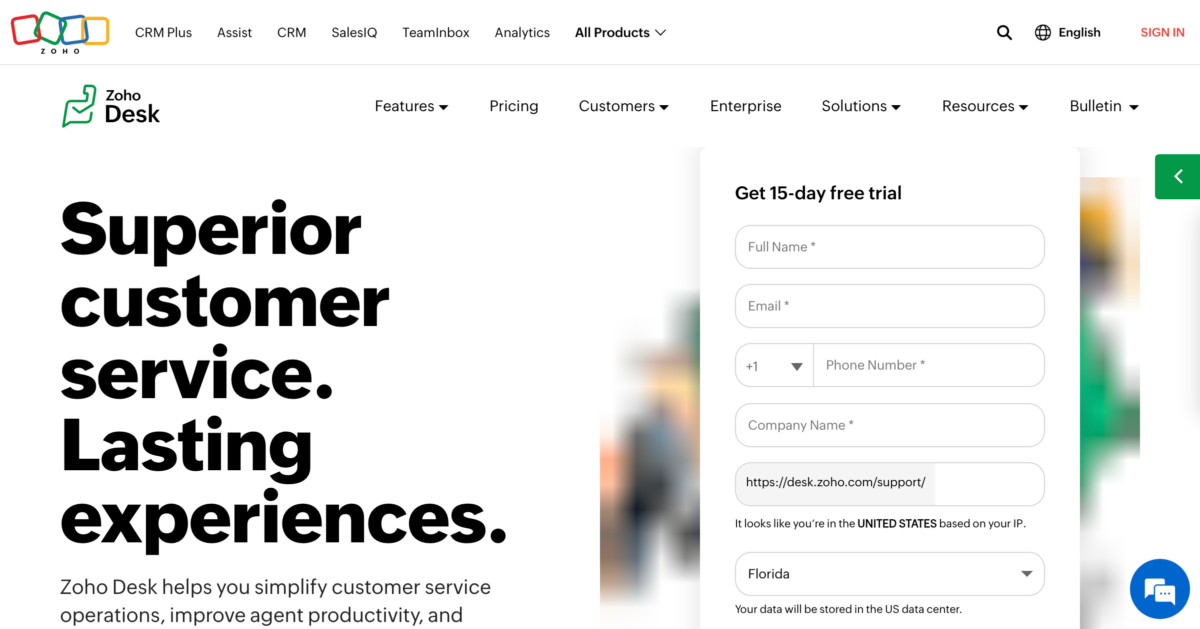
Let’s warmly welcome Zoho Desk, your new right-hand tool for effective customer service. Everyone likes being treated well, and your customers are no exception. Zoho Desk empowers your customer service team to track, prioritize, and solve customer support tickets in the ecommerce space where your customers are. And the smarts don’t stop there; with Zoho Desk, you can also propel your customer support with automation and AI, ensuring no query is left unattended and every customer feels valued.
HelpScout

HelpScout is a top-notch help desk solution for any ecommerce business aiming to provide unparalleled customer service. Revered by countless businesses for its functionality and simplicity, HelpScout expedites the management of customer queries. This utility significantly diminishes response times while ensuring each interaction is handled professionally. Moreover, it comes equipped with built-in reports and analytics, offering an all-embracing view of the performance of your customer service team. If your goal is to wow your customers with swift and exhaustive responses, then HelpScout is certainly a help desk tool worth considering.
How To Choose The Right Tools For Your Ecommerce Business
Choosing the right ecommerce tools is vital for the success and growth of your online business. Consider the following key features while making your choice:
- Compatibility: Select tools that integrate well with your existing software for higher efficiency.
- Growth Capacity: Your tools should be capable of accommodating business growth.
- Usability: Opt for user-friendly tools that provide understandable data and great customer service.
- Automation: Tools with automation capabilities save time and reduce errors.
- Security: Your ecommerce tools should adhere to the latest encryption standards for robust data safety.
- Customization: Tools that allow customization can help your brand stand out in the competitive market.
- Pricing: Select tools that offer value and scalability while fitting within your budget.
Take full advantage of the free trials offered by most vendors before commitment. With the right tools, you can build a thriving ecommerce business.
Leveraging Ecommerce Tools To Boost Sales
When you first set up an ecommerce business, you feel invincible. Excitement is high, but your budget often isn’t. Remember to plan carefully, choose tools and platforms to scale with you, and invest where it counts.
One area I wouldn’t overlook is marketing. Without customers, your business is nothing but an expensive dream. Without ecommerce marketing, would-be customers don’t know you exist.
Your tools are based on your business model, technical knowledge, and marketing budget. If you have your line of branded products and a deep marketing budget, your toolset will be very different than a drop shipping business with no marketing budget.
Don’t overlook ways to monetize your store outside the products you’re selling. Affiliate marketing is a smart way to boost your product’s visibility when you’re the one offering your product to affiliates. When you sell affiliate products on your site, you benefit from free niche and product testing. Both are win-win scenarios.
Did I miss your favorite ecommerce tool or forget to mention something you love or hate about one of them? Let us know!










